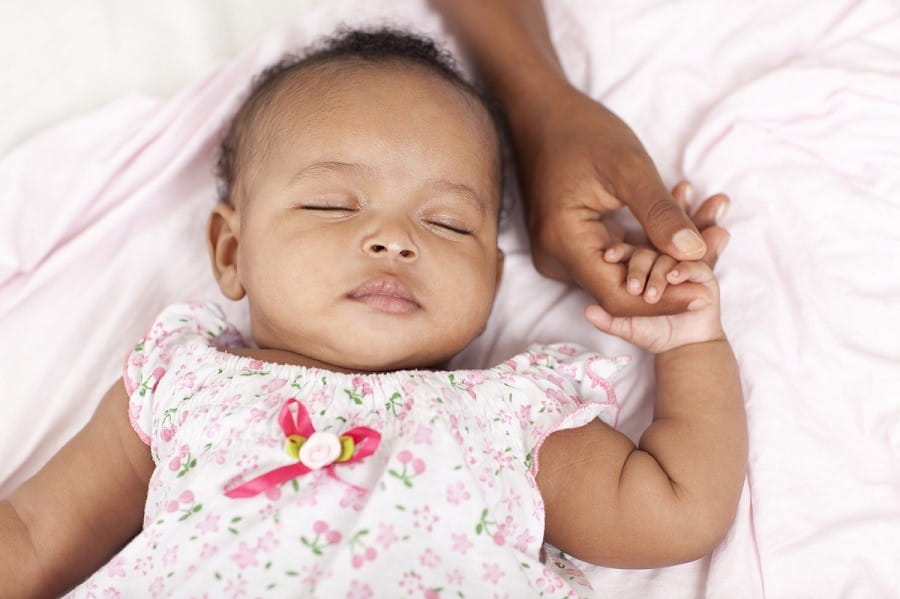Here Comes Another! 8 Ways to Help Your Firstborn Prepare for a Newborn

By Kim DeMarchi and Ann DeWitt
Many parents imagine their children in a blissful future state: playing together, getting along, laughing, treating each other kindly, and always having each other’s backs.
But a new baby can cause serious upheaval for older brothers and sisters. That’s understandable. Your firstborn was the center of your universe, getting your rapt attention at every adorable coo and tear-filled cry. With their basic needs fulfilled all of the time, they felt loved and a sense of belonging, and occupied a (rather kingly) place in the family.
And then…along came baby sister.
With mom and dad (or dad and dad) focusing so much attention and energy on the baby, firstborn children may find themselves lost and struggling to find their place among this new family dynamic—they’ve literally been dethroned by a tiny baby.
Everyone Belongs In Our Circle
At KinderCare, we’re committed to building warm, welcoming and supportive classrooms for children of all abilities, backgrounds and experiences.
Find a center near youAnd, depending on their age, they may not have the emotional tools to manage such a sudden and momentous shift. This is especially true for the dynamic between a toddler and newborn. Toddlers are just beginning to understand how to manage big feelings. Faced with the new queen in the castle, you may find your sweet, sweet boy suddenly changes. They may become:
- Aggressive by pinching, hitting, or grabbing things from the new baby—which often elicits the big reaction they seek from the parent.
- A super pleaser, eager to help and do whatever is needed (at the expense of their own wants and needs). You might notice that your child seems fearful and uncertain that they are still loved and important to you.
- A “baby” again, regressing and wanting to drink from a bottle, to be carried, and even to sleep in a crib.
- Attention-seeking (and not always in a good way). They may make messes and get into things they used to know were off limits. They may throw a fit over little things like getting into the car seat or putting on shoes.
Luckily, you can soften the impact of the new addition and help your toddler prepare for the newborn by working with them to find a positive role within the new dynamic—and by giving them plenty of love, too. Here’s how:
1. Read Books About Toddlers and New Babies Interacting Together
Your child might not have any clue about how to be a big brother or sister. Books to the rescue! They can give your child an idea about what’s to come, what their role might be, and often provide words for the complex feelings they’re experiencing. Barnes and Noble has a great list, as does Daily Mom.
2. Let Your Toddler Lend a Helping Hand
Let them help make dinner by washing and tearing lettuce for the salad, or ask them to carry in the mail. Chores for children can help them feel proud and capable and have less need to get attention in negative ways.
3. Understand that Your Older Child Might Regress
This is not the time to move your toddler out of their crib, start toilet training, take the binky away, or push them to grow up. Just show them lots of love!

4. Encourage Snuggling Between Your Toddler and the New Baby
Kissing their baby brother’s head and looking into their eyes increases connection and bonding between siblings. You may have to monitor their interactions at first to make sure your older child knows how to be gentle, but physical closeness can go a long way in making deeper connections.
5. Make Sure They Know ALL Feelings Are A-OK
Allow your child to express both positive and negative emotions about the baby—whether they’re glad, mad, or sad. Empathize with their feelings. Make sure they feel heard and understood, not judged. Helping kids name their feelings is the first big step in helping them develop valuable social-emotional skills (and work toward getting used to that new bouncing bundle of joy).
6. Don’t Use the Baby as the Excuse
The baby’s needs might truly be the reason you can’t play a game right now, but don’t mention that. Instead, try using language like, “I would love to play with you. How about you read a book to me now, and in 10 minutes, I’ll get down on the floor and play trains?”
A Lifetime Of Confidence Starts Here
Our teachers help every child build the confidence they need to try new things and explore the world around them.
Search for a center near you7. Plan Special Time with Only Your Oldest Child
Visitors would love some baby-holding time. Pass along the baby to your guests and give your firstborn some much-needed mommy or daddy time and attention.
8. Enlist the Help of Friends and Family
When they come to visit, ask them to bring a gift for the older child if they bring one for the baby. Ask them to reach out to the older child first before asking to see the new baby, so your tot knows they’re still important and valued not only to you, but to the other important adults in their life.




